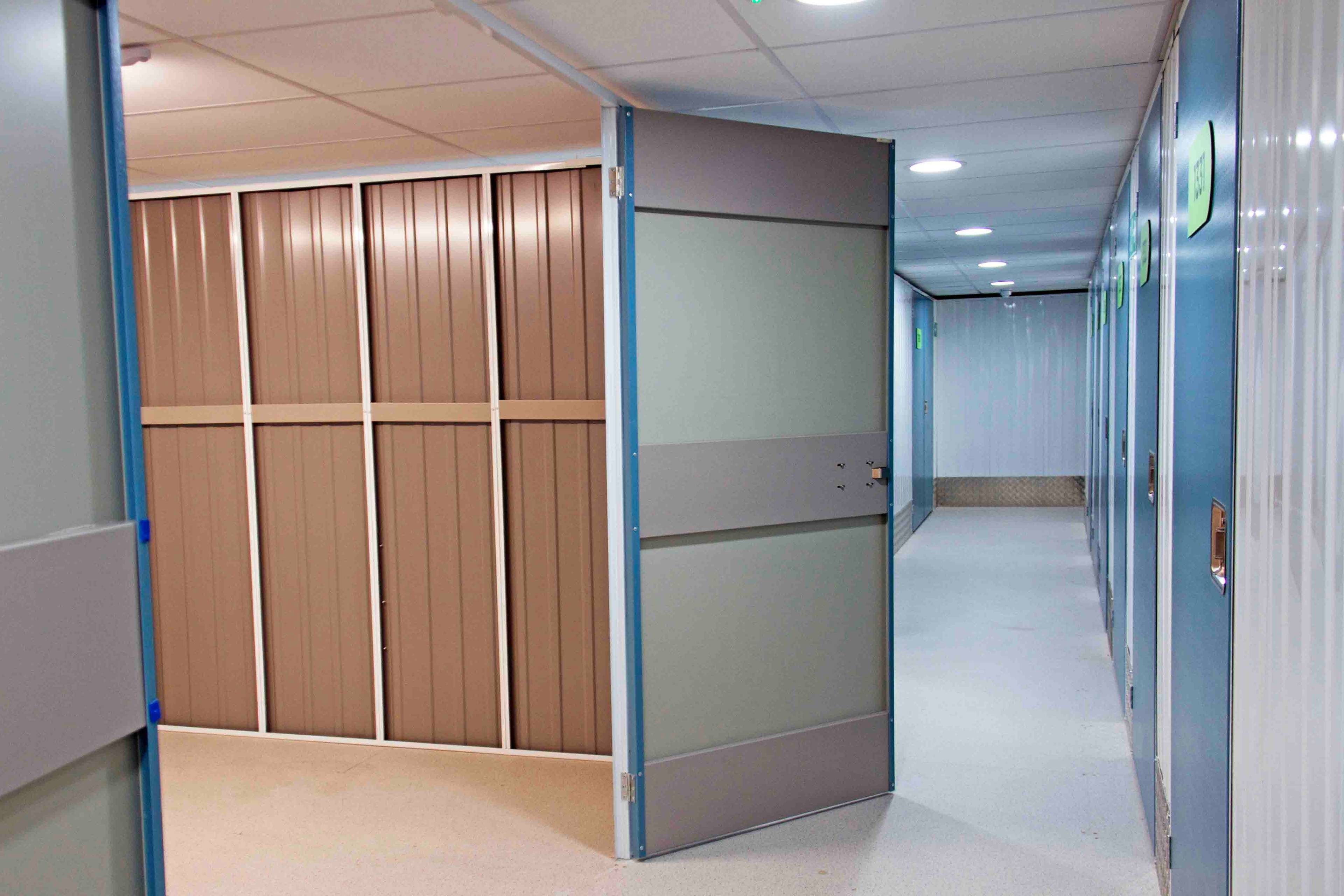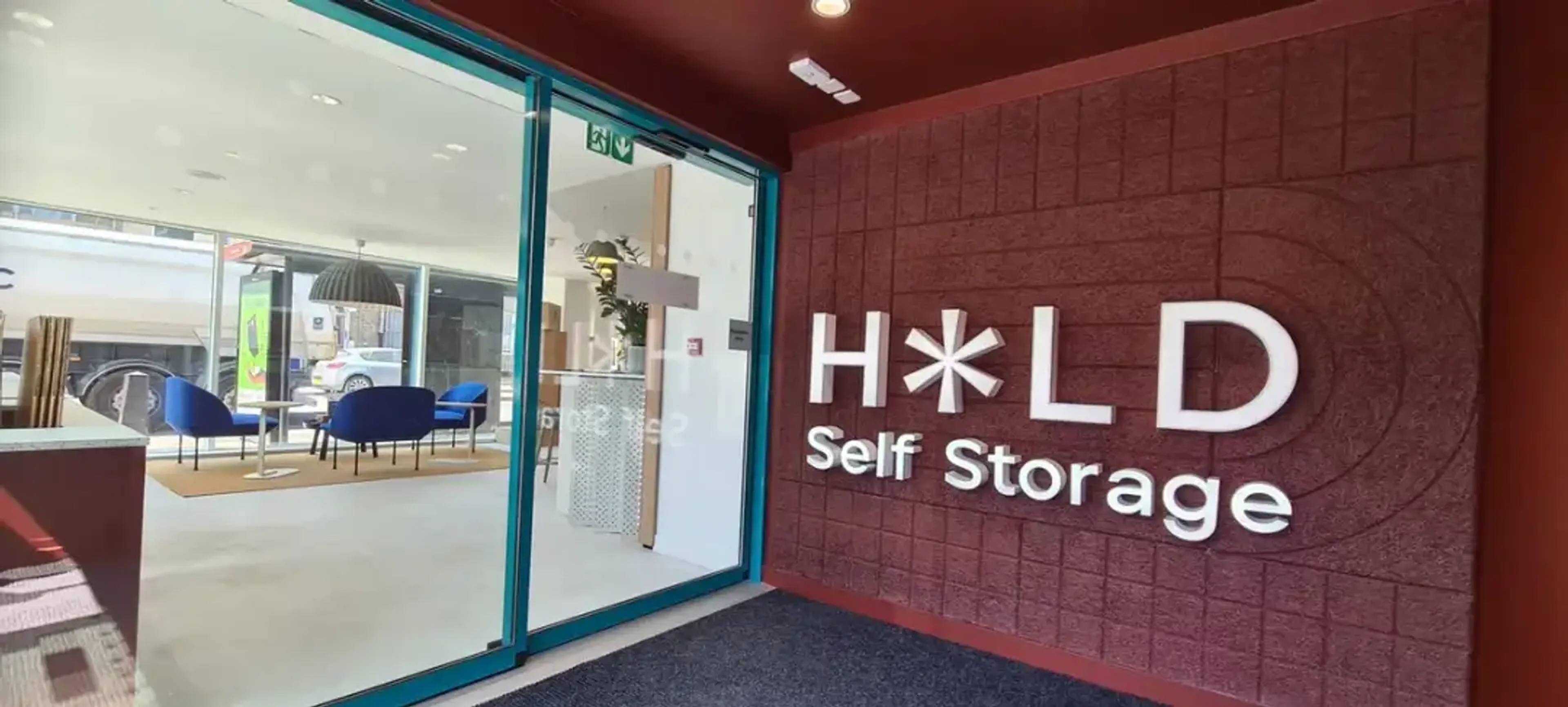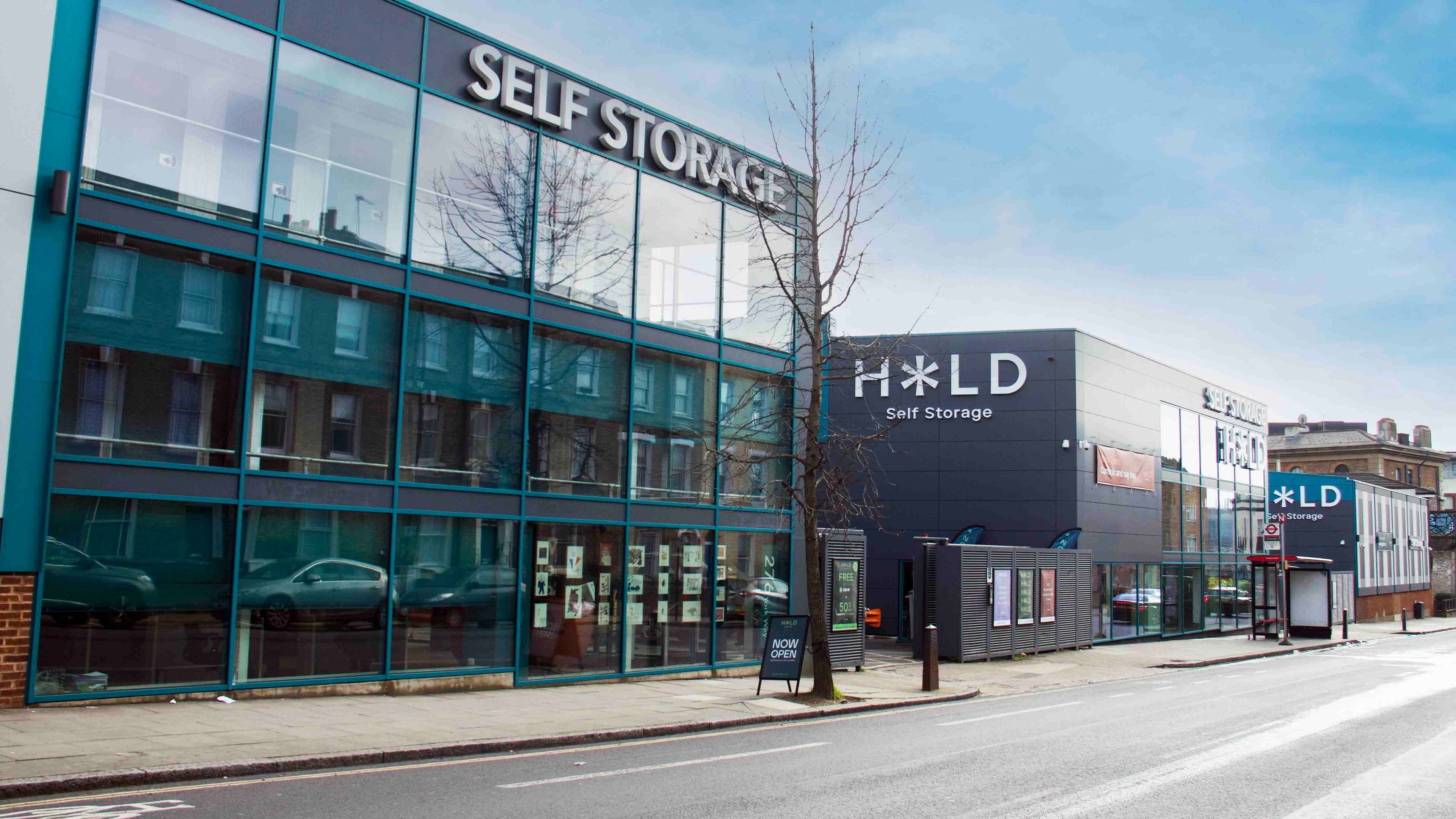Storage solutions play a crucial role in our lives – whether you're moving house, running out of space at home, or managing business inventory. Finding the right storage option can make your life easier and keep your personal items safe while they're out of sight.
Container storage and self storage units represent two distinct approaches to solving your space problems, each with its own set of advantages. While both provide secure storage for your belongings, they differ significantly in terms of accessibility, convenience, and overall service.
This comparison aims to help you navigate these differences so you can choose the option that best suits your unique storage needs. Whether you're an individual looking for extra space or a business requiring flexible storage solutions, understanding these options will help you make a confident decision.
Table of contents
- Container storage – Overview and benefits
- Self storage – Overview and benefits
- Comparison – Key differences and considerations
- Real-world examples
- Key questions to consider
What is container storage?

Container storage refers to using shipping containers as dedicated storage spaces – typically large metal boxes designed to be durable and weather-resistant. These storage containers are usually located on secure sites outside of central London, where space is more affordable and plentiful.
Advantages
Convenience – One of the most appealing aspects of container storage is its delivery option. Many providers will bring the container directly to your premises, allowing you to load it at your own pace before it's transported to the storage site.
This can be particularly helpful when moving house or clearing large volumes of furniture.
Cost-effectiveness – Container storage often proves more economical for long-term storage needs. The pricing structure typically favours extended hire periods, making it an attractive option for businesses that need to store equipment or stock for extended periods.
The rates are generally lower than equivalent-sized self storage units, especially in locations around London where property prices drive up costs.
Durability and security – Shipping containers are built to withstand harsh oceanic conditions, making them inherently robust and secure. Most container storage facilities offer additional security features to keep your belongings safe and secure.
The heavy-duty construction provides natural protection against weather and potential theft, although you may want to consider your own padlocks for added peace of mind.
Common uses
Container storage works exceptionally well for:
- Businesses storing large equipment or excess inventory
- Storing household contents during extended renovations
- Long-term storage of vehicles or boats
- Construction firms needing to store tools and materials at various sites
- Anyone requiring substantial storage space at a more affordable rate
The flexibility of container hire makes it ideal for situations where you need significant space but don't require frequent access to your items.
What is self storage?

Inside a HOLD self storage facility
Self storage offers purpose-built units within dedicated facilities, typically housed in clean, well-lit buildings with various unit sizes available. These facilities are often located in accessible urban areas, including multiple locations across London, making them convenient for customers who need regular access.
Advantages
Accessibility – Perhaps the most significant benefit of self storage is the flexible access hours, with many facilities offering extended or even 24-hour availability. This level of access makes self storage ideal if you'll need to retrieve or add items frequently. The convenient locations and easy access to your unit mean you can treat it almost like an extension of your home or business premises.
Climate control – Unlike container storage, many self storage facilities offer climate-controlled environments that protect sensitive items from temperature fluctuations and humidity. This makes them perfect for storing valuable furniture, electronics, documents, or other items that could be damaged by environmental factors. The indoor setting provides an extra layer of protection that outdoor containers simply can't match.
Security features – Self storage facilities typically invest heavily in security, with features such as CCTV surveillance, alarm systems, secure access codes, and often on-site staff. These comprehensive security measures provide peace of mind that your belongings are well-protected, which is especially important for storing valuable or irreplaceable items.
Flexibility – Self storage units come in a wide range of sizes, from small lockers to large rooms, allowing you to rent exactly the space you need. Most providers offer flexible contracts, so you can adjust your storage requirements as your needs change – perfect if you're unsure about exactly how much space you'll need or how long you'll need it.
Services and amenities – Many self storage facilities provide additional services to make your life easier, such as trolleys for moving heavy items, pallet trucks, package acceptance, and sales of packing boxes and other moving supplies. These extras enhance the customer experience and can save you time and effort.
Common uses
Self storage is particularly well-suited for:
- Storing household items during home moves or renovations
- Business inventory management, especially for items that need regular access
- Archiving important documents
- Storing seasonal items like holiday decorations or sports equipment
- Students storing belongings during holiday periods
- Small businesses without adequate space on their premises
The combination of security, accessibility and flexible terms makes self storage an excellent all-round solution for many storage needs.
Comparison – Key differences and considerations

Accessibility and convenience
While container storage offers the convenience of initial delivery to your location, self storage provides superior ongoing accessibility. With self storage, you can typically visit your unit whenever you need during operating hours, whereas accessing container storage might require scheduling in advance and could involve travelling to less central locations.
For Londoners living in busy areas, this difference in accessibility can be significant. Self storage facilities are often located in more convenient urban locations with good transport links, while container storage sites tend to be situated in more remote areas where land is less expensive.
Cost considerations
The pricing structures between these storage types differ substantially. Container storage is generally more affordable per square foot, especially for larger spaces and longer terms. If you're storing large amounts of furniture or business equipment for an extended period, container storage could save you significant money over time.
While potentially more expensive, self storage offers a different value proposition. The additional services, flexibility and accessibility might justify the higher cost for many customers. When comparing prices, remember to factor in any additional costs like insurance, transport, and the value of your time spent travelling to and from the storage location.
Environmental control
For items sensitive to temperature and humidity, the environmental controls offered by self storage facilities can be crucial. HOLD's climate-secure units ensure protection for antique furniture, electronics, artwork, and paper documents (all which benefit from consistent environmental conditions).

Container storage (being essentially outdoor storage) can be susceptible to temperature fluctuations. While containers are generally waterproof, condensation can still form inside during extreme weather changes. If you're considering container storage for sensitive items, you might need to invest in dehumidifiers or other protective measures.
Security
Both storage options can be secure, but they approach security differently. Self storage facilities like HOLD provide robust, layered security systems. This includes 24/hr CCTV, individual unit alarms, keypad entry, and regular security checks.
Container storage relies more on the inherent security of the container itself plus the overall site security. While containers are difficult to break into by design, the storage sites may have varying levels of additional security features. It's worth checking what specific security measures are in place at any facility you're considering.
Additional services

The service experience differs significantly between these options. Self storage facilities are service-oriented businesses with friendly teams available to help customers. For example, HOLD provides many different storage amenities for different use cases, including free Zip-van hire, dedicated workstations, and tailored customer support.
Conversely, container storage is generally more bare-bones in terms of service – you're essentially renting the container space rather than a comprehensive service package. This no-frills approach contributes to the lower pricing but means you'll need to handle more aspects of the storage process yourself.
Real-World Examples
Home renovation project
Sarah was renovating her three-bedroom house in London and needed to store all her furniture and personal belongings for six months. She chose self storage because:
- She needed to access specific items throughout the renovation.
- The climate-controlled environment protected her antique furniture.
- The convenient location meant she could pop in whenever needed.
- The flexible contract allowed her to extend when the renovation fell behind schedule.
The self storage unit provided peace of mind during a stressful renovation, and the accessibility meant she could retrieve seasonal items as needed.
Business seasonal stock
A landscaping business needed to store equipment during the winter months. They opted for container storage because:
- They had large, durable items that didn't require climate control.
- They didn't need frequent access during the off-season.
- The substantially lower cost made sense for their seasonal business model.
- The container's robust construction suited their heavy-duty equipment.
The container storage solution provided an affordable way to keep their expensive equipment secure during the slower months, maximising their business profitability.
Key questions to consider
When deciding between container storage and self storage, ask yourself:
- How often will you need to access your stored items? Frequent access favours self storage?
- How much space do you truly need? Container storage may be more cost-effective for larger requirements?
- Is security a major concern for your specific items? Consider the value and replaceability of what you're storing?
- How long do you plan to store your items? Longer periods might make container storage more economical?
- Will you require any additional services like packing supplies or moving assistance?
- Do you need an indoor solution to protect sensitive items?
- What is your budget for storage?
- How important is location and convenience to your situation?
- Are you preparing for a specific life event like moving house that might affect your storage needs?
Your answers to these questions will help clarify which option aligns best with your specific requirements.
Conclusion
Both container storage and self storage offer valuable solutions for different storage needs. Container storage provides cost-effective options for long-term storage of larger items, particularly when frequent access isn't necessary. The robust construction and lower pricing make it ideal for businesses with substantial storage requirements or individuals with long-term needs.
Self storage, with its emphasis on accessibility, security and customer service, offers a more premium experience. By carefully considering the factors outlined in this guide (what you're storing, for how long, how often you'll need access, and your budget) you can save money and pick the perfect solution.
We hope we've helped you make an informed choice between a shipping container or a climate-secure unit.
Good luck on your storage journey!
HOLD – Premium self storage in London

Need a storage solution that fits your specific needs? HOLD offers 24/7 access self storage with a genuine customer-first approach. Whether you're looking for personal or business storage solutions, our flexible contracts with no fixed terms ensure you only pay for what you actually need.
We provide secure self storage units in wide range of sizes to match your exact requirements. Our Kings Cross facility has been built to the highest standards, and our friendly team can tailor a storage solution that works for you.
Get your free quote today!
Frequently Asked Questions
What are the accessibility differences between self and container storage?
Self storage typically offers flexible access with extended hours and convenient urban locations across London. HOLD takes this further, being one of the only self storage companies in the UK that provides free 24-hr access.
Container storage usually has limited access hours and is located in more remote areas, requiring advance planning. This makes self storage better for items you'll need regularly, while container storage suits long-term storage with infrequent access.
How does the environmental impact of self storage compare to container storage?
In general, container storage has a lower environmental footprint as it repurposes existing shipping containers. Self storage facilities consume more energy with climate control systems but often implement green initiatives like LED lighting and solar panels.
Case in point, HOLD is committed to sustainability and aims to be the first in the self-storage industry to achieve a BREEAM Outstanding rating. Our Kings Cross site exemplifies this commitment, with 90% of materials recycled during demolition and construction.
What are the typical rental periods for self storage and container storage?
Many self storage facilities (like HOLD) offers flexible monthly contracts that can be extended or shortened as need. Container storage typically requires longer minimum commitments (3-6 months) but provides substantial discounts for extended hire periods.
How do insurance options differ between self storage and container storage?
Self storage facilities typically offer comprehensive insurance packages tailored to their units and security systems. For example, HoldAssure provides coverage for your stored belongings against risks like theft, fire, and water damage, with up to £50,000 protection.
Container storage insurance tends to be more basic, with customers often arranging their own coverage.
What are the most common uses for self storage units?
Self storage is ideal for moves, renovations, downsizing, and business inventory. It’s also used for seasonal items, collections, and student storage during holidays
What security measures does HOLD have for storage units?
HOLD has advanced security measures that protect for our customers' business assets. These include:
- 24-hour CCTV
- Burglar alarms
- Regular checks
- Personal pin codes
- Individually alarmed units
- Fire detection systems
These features not only provide peace of mind, but also protect your business assets from potential threats.


